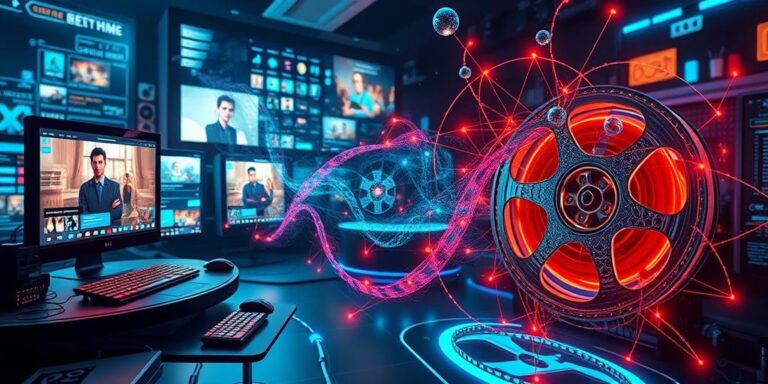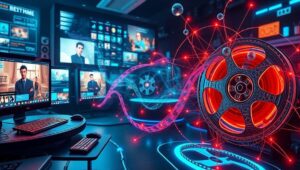AI Transforming the Entertainment Industry by 2028: Personalized Content & VFX
The entertainment industry is on the cusp of a significant transformation, driven by advances in Artificial Intelligence (AI). By 2028, we can expect AI to revolutionize content creation, personalization, and visual effects (VFX), leading to more immersive and engaging experiences for audiences. This post will explore how AI is poised to reshape the entertainment landscape.
Personalized Content Experiences
One of the most impactful changes will be the rise of AI-driven personalized content. Streaming platforms and content providers are already leveraging AI to analyze user data, including viewing habits, preferences, and demographics. This data is then used to:
- Recommend Content: AI algorithms suggest movies, TV shows, and music tailored to individual tastes.
- Curate Playlists: AI creates personalized playlists that evolve with user preferences.
- Generate Custom Content: In the future, AI could generate entirely new content based on user input, such as interactive stories or personalized music tracks.
By 2028, expect AI to power hyper-personalized experiences, where content adapts in real-time to viewer emotions and engagement levels. Imagine a movie that changes its plot based on your reactions or a video game that adjusts its difficulty based on your skill level.
Revolutionizing Visual Effects (VFX)
AI is also transforming VFX, making it faster, cheaper, and more realistic. AI algorithms can automate many of the tedious and time-consuming tasks involved in VFX, such as:
- Rotoscoping: AI can automatically identify and isolate objects in video footage, significantly reducing the time required for rotoscoping.
- Motion Capture: AI can enhance motion capture data, making it more accurate and realistic.
- Creating Realistic Environments: AI can generate detailed and believable environments, from sprawling cities to alien landscapes.
By 2028, expect AI to enable filmmakers and game developers to create stunning visual effects with greater efficiency and at a fraction of the cost. This will democratize VFX, allowing smaller studios and independent creators to produce high-quality content.
The Future of AI in Entertainment
The integration of AI into the entertainment industry is not without its challenges. Ethical considerations, such as bias in algorithms and the potential for job displacement, must be addressed. However, the potential benefits of AI are immense.
By 2028, AI will likely be an integral part of the entertainment industry, driving innovation and creating new opportunities for content creators and consumers alike. From personalized content experiences to stunning visual effects, AI is poised to transform the way we create, consume, and interact with entertainment.
Key Takeaways
- AI-driven personalization will lead to more engaging content experiences.
- AI will automate and enhance VFX, making it more accessible.
- Ethical considerations must be addressed to ensure responsible AI implementation.
- AI will drive innovation and create new opportunities in the entertainment industry.




